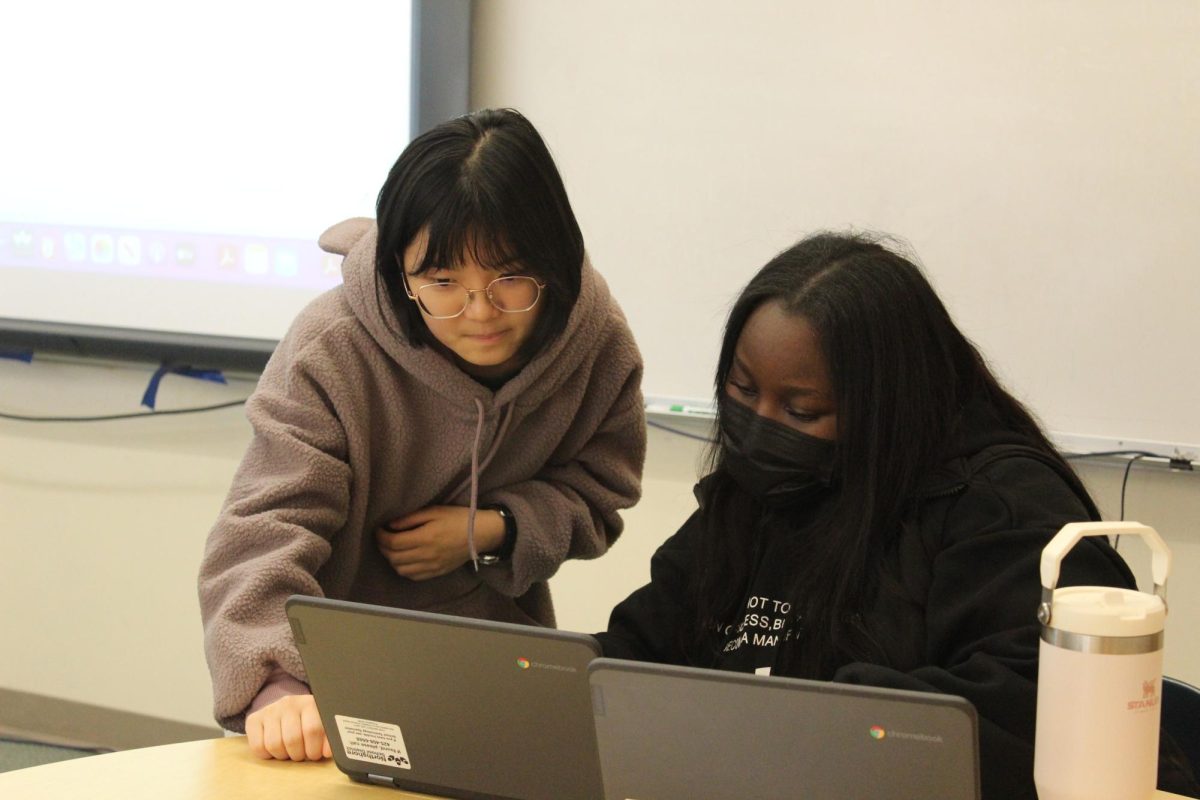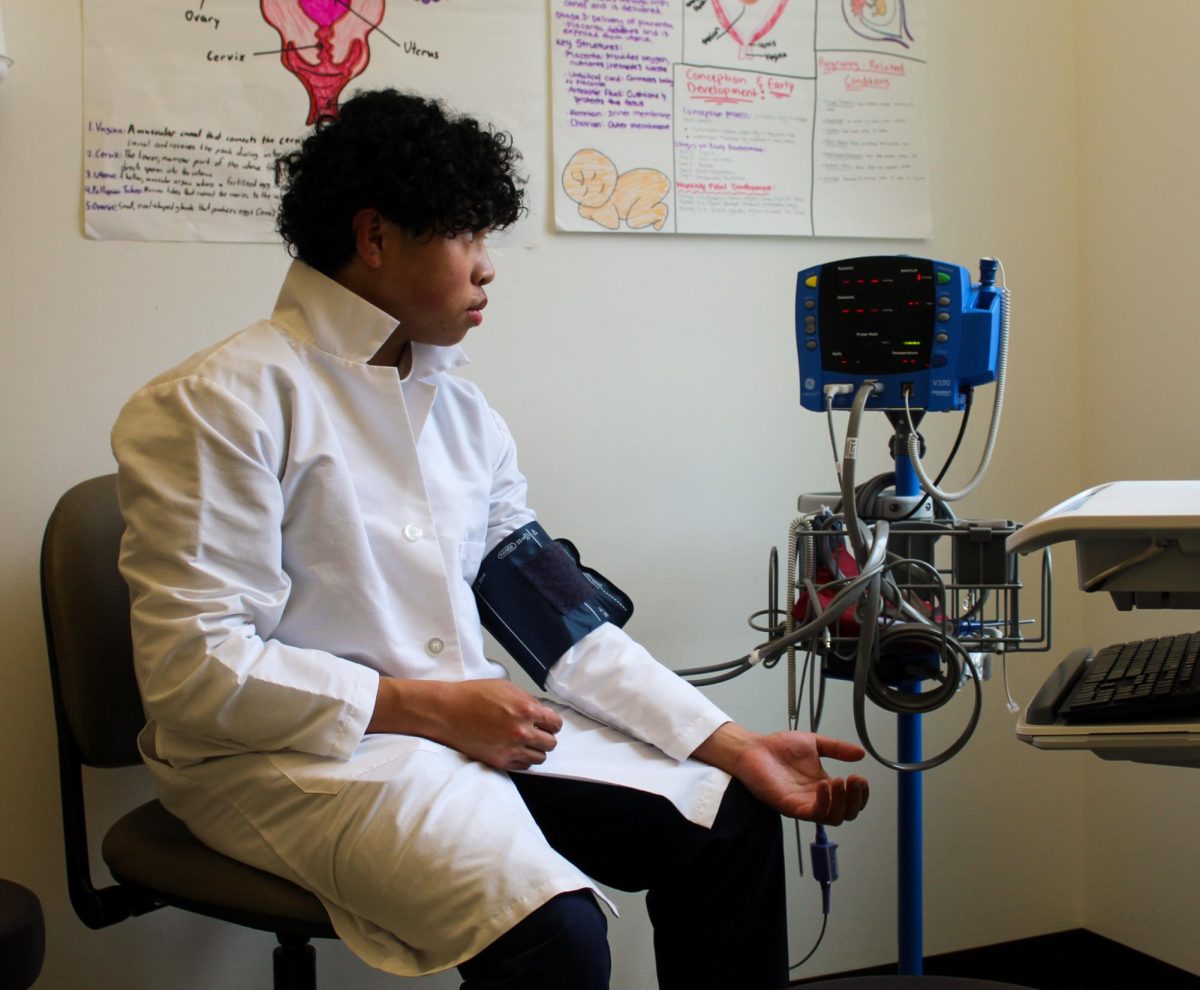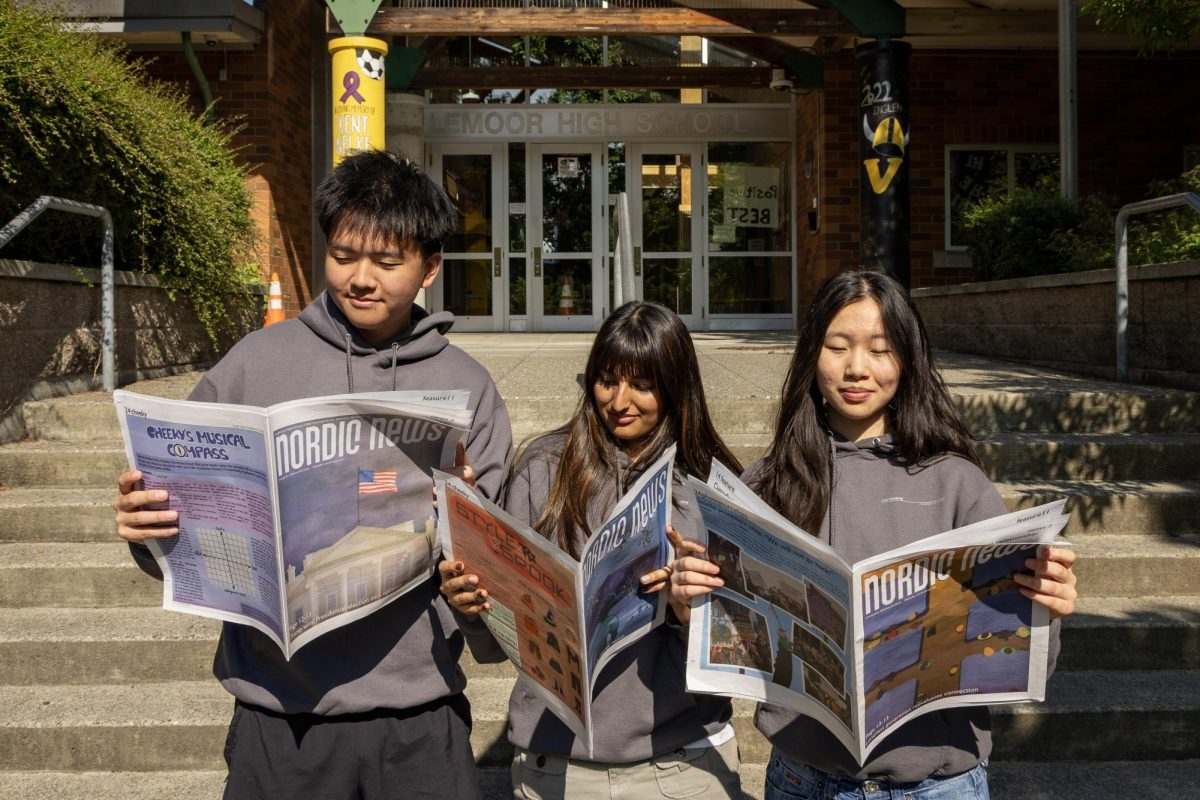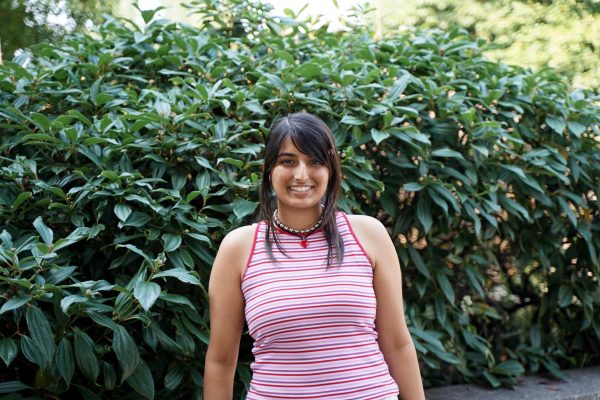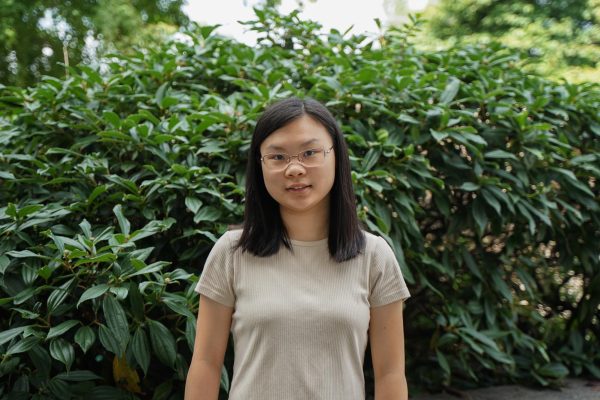Washington is home to more than 140,000 English Language Learner students, according to the Washington Office of Public Instruction, and 140 of these students attend Inglemoor. NSD uses the term Multilingual Learners to refer to students who are in the English Learner Department. Home to a multitude of students at different English levels, the ELD is an important resource in helping students succeed, offering English language classes, study groups and in-class language accommodations.
“The multilingual program is so multitiered,” said ML teacher Kelly McLaurin (she/her). “Not every multilingual learner needs my class. Some of them are more advanced and so they need fewer supports.”
A student’s English proficiency determines their classes and support options. Beginners take the Multilingual English class for newcomers, taught by Joanna Little (she/her). This class focuses on directly teaching the language and is similar to a foreign language class. Some ML students also take McLaurin’s Academic Language Development class, where they recieve help for non-English classes they may struggle with due to language barriers. The class functions like a study group and students rely on each other and resources like translators to fully understand their general classes.
Students in McLaurin’s class can also work with paraeducators who go to classes with students to assist with classwork as needed.
“Can you imagine that you start learning a language that you’ve never spoken before, and suddenly all your classes are taught in that language? And you’re expected to progress at the same pace as any other students who [are] speaking that language from their birth,” said ML paraeducator Natalia Butenko (she/her). “And that’s what every student who comes to us from another country is going through. So they do need a lot of support.”
Students who speak English proficiently but can’t read or write with the same proficiency still qualify for services and accommodations, such as permission to use translators in class, vocabulary sheets and extra time on exams.
“Even a grown-up person learns second language the way a child learns their first language. They don’t understand the big words; they understand simple words,” Butenko said.
Butenko moved from Russia to the United States when she was in college and said that because of this, she often has a lot of common ground with her students.
“I don’t understand the class, so I ask the teachers in Ms. McLaurin’s class,” Yang said. “The most difficult subject for me is U.S. history, and I get help from Ms. Butenko.”
Desmarest doesn’t take ML or ALD classes but has ML accommodations. Desmarest is also an IB Diploma student.
“People always say that English speakers talk really fast, but when I was hearing my teachers for the first time, I was so happy that I understood them,” Desmarest said.
Desmarest said she took English classes in school before she moved to the U.S. and also studied a lot to be fluent.
As the size of ML classes grows, so does the need for more resources, McLaurin said. There are only three paraeducators for multilingual learners, and they only work 20 hours a week. In contrast, the special education department employs full-time paraeducators who work 40 hours a week. Additionally, since Oct. 12, students have not been able to use their much needed live translation services. Provided by Microsoft, the translation software has gone behind a paywall.
“It’s a huge injustice to our multilingual learners. They deserve support and our tech support,” McLaurin said. “I’m so scared for our kids. Because out there in biology and world history, teachers are using this so that kids can [follow] what they’re saying. If you don’t have that, that’s huge, a huge detriment.”
ML students not only have to learn a new language, but also have to adapt to a foreign culture. Junior Valentina Desmarest (she/her), who moved here last August, said her school in Mexico was very different from Inglemoor. Before, she had a fixed schedule of classes that she didn’t get to choose. She was surprised by the overwhelming amount of options available at Inglemoor for both classes and extracurriculars.
“Here, you have a lot of options for extracurricular activities, like clubs and sports that have teams and go to competitions, big schools — like four times bigger — laptops, a big curriculum of classes and advanced classes like IB or AP,” Desmarest said. “Inglemoor would be a very expensive private school in Mexico, but here it’s public, and it’s awesome.”
Junior Vanessa Yang (she/her) highlighted the differences between Inglemoor and her school in Taiwan. From using a computer instead of a textbook to following new classroom expectations, Yang said she has truly lived the American experience. Yang said that Taiwanese teachers primarily lecture.
“I’m so surprised that in the U.S., people can just walk around in the classroom. They want to throw away their trash, their garbage, they can just stand up and throw away,” Yang said.
Cultural differences in school make adapting to a new country difficult, and many ML students try to stay connected to their culture. For Desmarest, her connection involves finding memories of Mexico in Seattle.
“Like finding Mexican restaurants, rating them similar to Mexico or really different,” Desmarest said.
Desmarest also celebrates Mexican holidays, such as Día de los Muertos (Day of the Dead), a holiday dedicated to honoring the dead. The holiday involves parades, decorations and foods like Pan de Muerto, a type of sweet bread. Families typically make altars for deceased loved ones, known as ofrendas. Desmarest normally celebrates this tradition every year in Mexico, but this year in the U.S., she celebrated it differently.
“I didn’t do a lot of stuff,” Desmarest said. “We tried to make the ofrenda, and I have an aunt that brought us Pan de Muerto from Mexico, and it’s tasty! Pan de Muerto really brings up all those memories.”
Junior Suleyman Kerimov (he/him) has lived in the U.S. for over a year but is still connected to his home country, Turkmenistan.
“I always try to celebrate our cultural days, our Independence Days,” he said.
McLaurin said it’s important to acknowledge the hard work and difficulties ML students face in their day-to-day lives.
“These kids are doing amazing things, and it’s really ridiculously impressive what they do on a daily basis,” McLaurin said.



